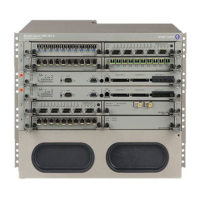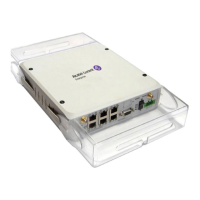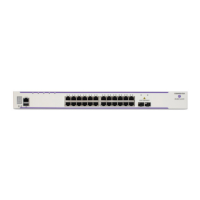IES Command Reference
Page 372 7705 SAR OS Services Guide
The broadcast format on an IP interface can be specified when the IP address is assigned or
changed.
This parameter does not affect the type of broadcasts that can be received by the IP interface. A
host sending either the local broadcast (all-ones) or the valid subnet broadcast address (host-
ones) will be received by the IP interface.
all-ones — specifies that the broadcast address used by the IP interface for this IP address is
255.255.255.255 (also known as the local broadcast)
host-ones — specifies that the broadcast address used by the IP interface for this IP address is the
subnet broadcast address. This is an IP address that corresponds to the local subnet described by
the IP address and mask with all host bits set to 1. This IP address is the default broadcast address
used by an IP interface.
allow-directed broadcasts
Syntax [no] allow-directed broadcasts
Context config>service>ies>interface
Description This command enables the forwarding of directed broadcasts out of the IP interface.
A directed broadcast is a packet received on a local router interface destined for the subnet broadcast
address of another IP interface. The allow-directed-broadcasts command on an IP interface enables
or disables the transmission of packets destined for the subnet broadcast address of the egress IP
interface.
When enabled, a frame destined for the local subnet on this IP interface is sent as a subnet broadcast
out this interface.
By default, directed broadcasts are not allowed and are discarded at this egress IP interface.
The no form of the command disables directed broadcasts forwarding out of the IP interface.
Default no allow-directed broadcasts
arp-timeout
Syntax arp-timeout seconds
no arp-timeout
Context config>service>ies>interface
Note: Allowing directed broadcasts is a well-known mechanism used for denial-of-service
attacks.
